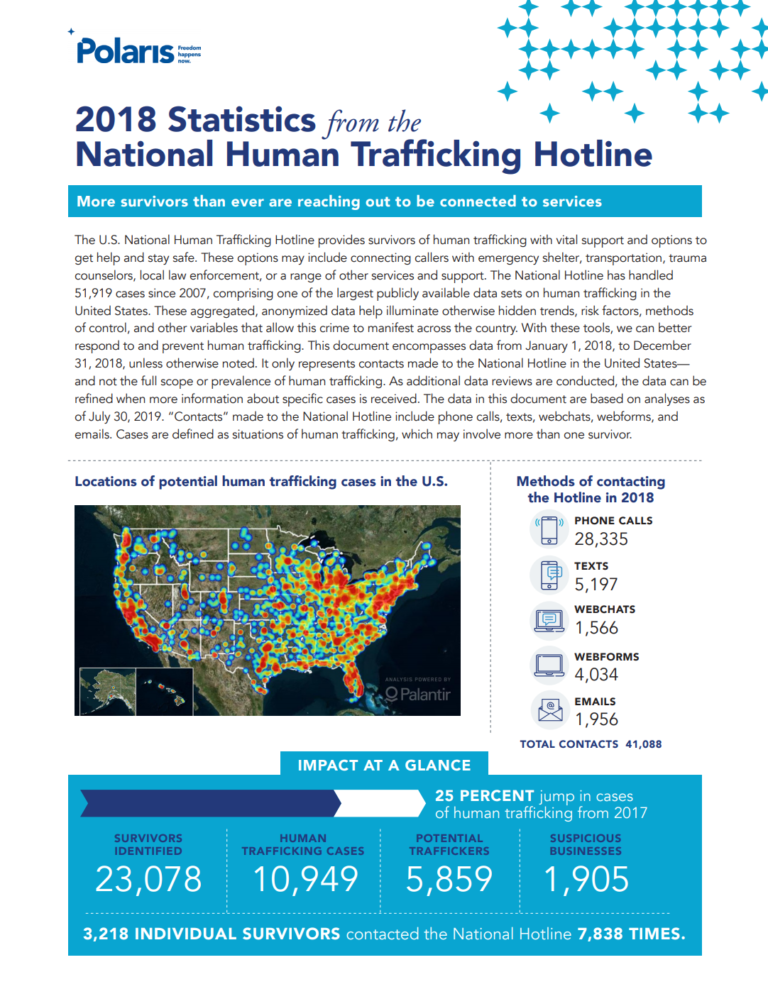The U.S. National Human Trafficking Hotline provides survivors of human trafficking with vital support and options to get help and stay safe. These options may include connecting callers with emergency shelter, transportation, trauma counselors, local law enforcement, or a range of other services and support. The National Hotline has handled 51,919 cases since 2007, comprising one of the largest publicly available data sets on human trafficking in the United States. These aggregated, anonymized data help illuminate otherwise hidden trends, risk factors, methods of control, and other variables that allow this crime to manifest across the country. With these tools, we can better respond to and prevent human trafficking. This document encompasses data from January 1, 2018, to December 31, 2018, unless otherwise noted. It only represents contacts made to the National Hotline in the United States— and not the full scope or prevalence of human trafficking. As additional data reviews are conducted, the data can be refined when more information about specific cases is received. The data in this document are based on analyses as of July 30, 2019. “Contacts” made to the National Hotline include phone calls, texts, webchats, webforms, and mails. Cases are defined as situations of human trafficking, which may involve more than one survivor.

